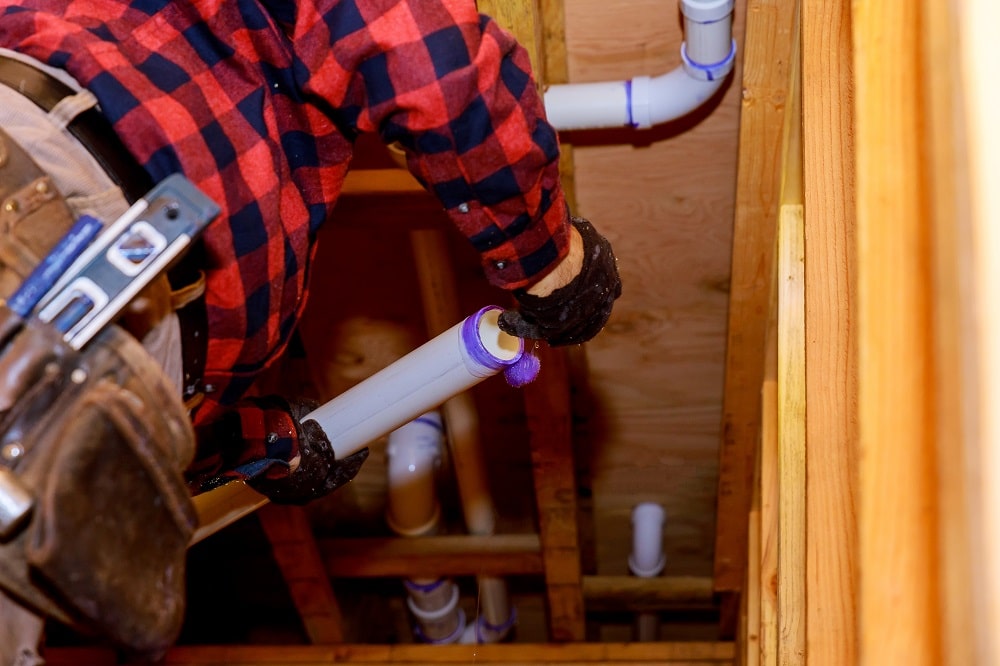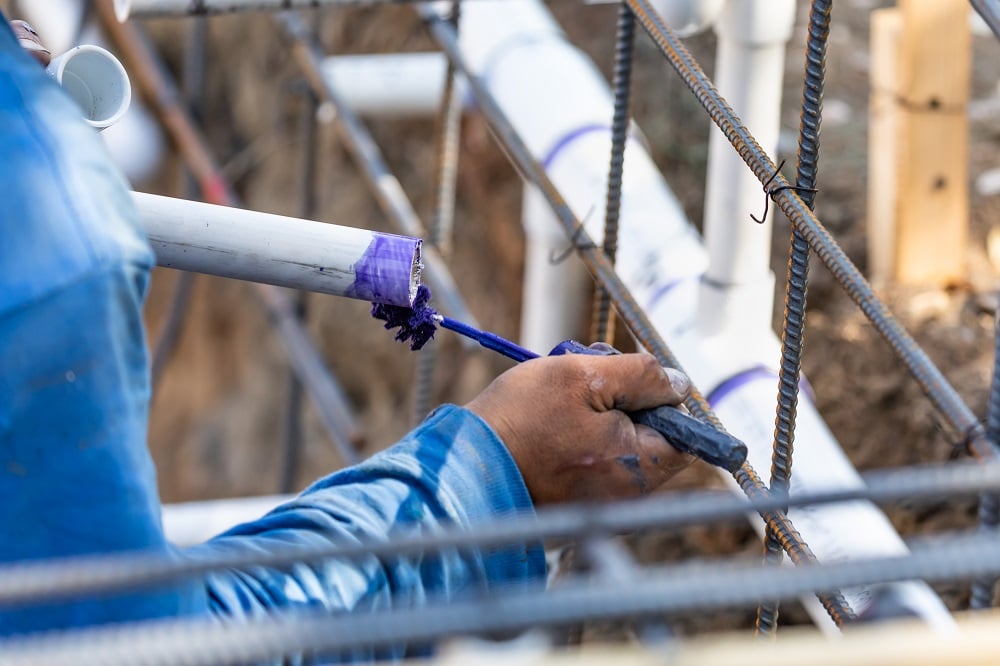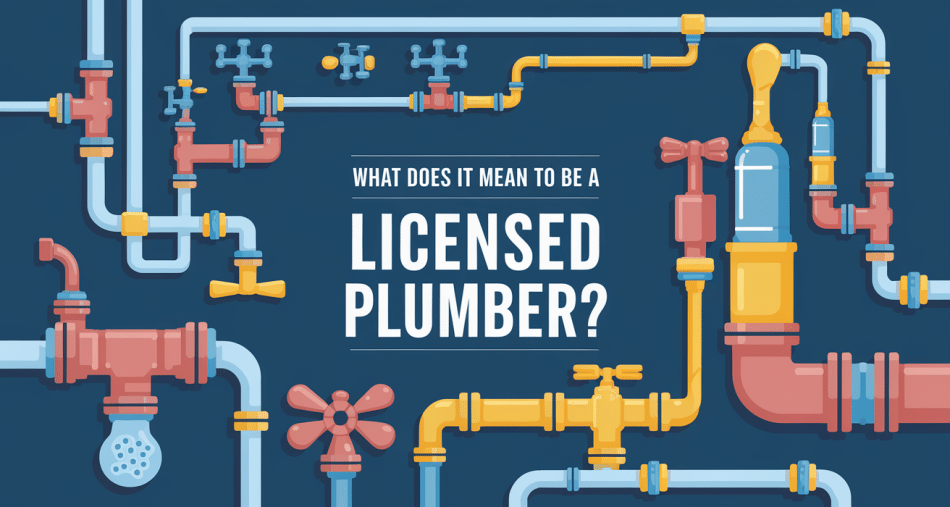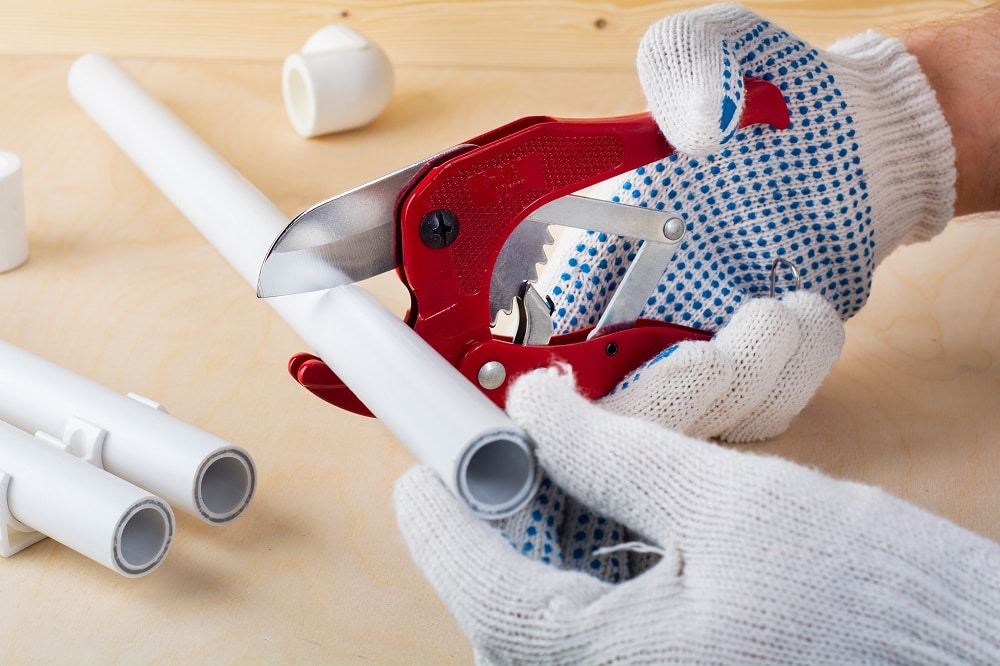What Does It Mean to Be a Licensed Plumber?
-
tomsplumbing
-
0 Comment
Table of Contents
- Key Takeaways
- The Licensing Process: Education, Training, and Testing
- License Types: Who’s Qualified for What?
- Why Licensing Matters for Homeowners
- The Real Benefits of Hiring a Licensed Plumber
- What About States with Looser Rules?
- Why Choose Tom’s Plumbing and Drain Service, LLC
When something goes wrong with your plumbing, hiring just anyone can lead to bigger problems. You need someone qualified—someone licensed. But what does that actually mean?
At Tom’s Plumbing and Drain Service, LLC, we believe homeowners should understand what a licensed plumber brings to the job—and why it matters more than most people think. Let’s break down how plumbers get licensed, why it matters for your home, and what to look for when hiring someone you can trust.
Have a plumbing issue now? Contact us today and let our licensed professionals take care of it quickly and correctly.
Key Takeaways
- Licensed plumbers go through formal education, thousands of hours of supervised work, and a certification exam.
- Licensing ensures code-compliant, safe, and professional plumbing work for your home.
- Hiring a licensed plumber protects you legally and financially—especially when something goes wrong.
- Unlicensed plumbing may be cheaper upfront, but it can lead to costly issues later.
- Tom’s Plumbing and Drain Service, LLC offers fully licensed, insured, and qualified service you can count on.
The Licensing Process: Education, Training, and Testing
Getting a plumbing license isn’t a quick or casual process. It takes years of learning, hands-on work, and passing a state-approved exam to earn the title.
Classroom Education

On-the-Job Training
Most licensing paths include a formal apprenticeship, where the plumber gains real-world experience under a licensed expert. This includes a minimum of 4,000 hours—often more—working directly on job sites. During this time, apprentices learn how to install, repair, and maintain plumbing systems properly.
Licensing Exams
Once training hours are complete, plumbers take a licensing exam. These exams test their knowledge of building codes, safety rules, plumbing system design, and diagnostic practices. Passing this exam is the final step to becoming a licensed plumber in most states.
License Types: Who’s Qualified for What?
Licensing isn’t one-size-fits-all. There are different levels based on a plumber’s training and legal work limits.
- Journeyman License – This is the entry-level license that allows a plumber to work independently on residential or light commercial projects.
- Master Plumber License – A master plumber has years of additional experience and is qualified to supervise others, take on larger projects, and design plumbing systems.
- Plumbing Contractor License – This is typically required for anyone who owns a plumbing business or takes on jobs above a certain dollar amount (e.g., $500 in California).
In Louisiana and many other states, these levels are closely regulated, and each requires different qualifications.
Why Licensing Matters for Homeowners
Hiring a licensed plumber gives you more than just technical skill—it brings legal protection, safer work, and better outcomes for your home.
Skilled Work That Lasts
Licensed plumbers don’t rely on guesswork. They’ve been trained and tested to solve problems efficiently and follow best practices. That leads to long-lasting repairs—not short-term fixes.
Following Code
Plumbing codes vary by state, county, and even city. Licensed plumbers are trained to understand these rules and apply them properly. That keeps your home safe and avoids potential fines or permit issues.
Insurance and Liability Coverage
Licensed plumbers typically carry general liability and workers’ compensation insurance. That protects both them and you. If something goes wrong on the job, you’re not left to cover the damage out of pocket.
Health and Safety
Faulty plumbing can lead to serious risks—water contamination, mold, gas leaks, or sewer backups. Licensed plumbers are trained to prevent these hazards and keep your system safe for everyday use.
The Real Benefits of Hiring a Licensed Plumber
From advanced tools to dependable service, licensed plumbers offer lasting value that unlicensed workers simply can’t match.
Proven Experience
Becoming licensed means putting in the hours—typically thousands of them. Before getting certified, plumbers complete years of supervised field work, which builds the skill needed to handle any situation.
Professional Tools
Licensed plumbers use tools that help them diagnose and solve problems more accurately and efficiently. These include pipe inspection cameras, leak detectors, pressure gauges, and other industry-specific equipment.
Built-In Accountability
Licensed professionals answer to a state or local board. If something goes wrong and isn’t resolved, you have the ability to file a complaint. That accountability encourages better work from the start.
Long-Term Savings
While hiring an unlicensed plumber might save money upfront, it often leads to more repairs down the line. Licensed plumbers do the work correctly from the beginning, helping you avoid repeated issues and unnecessary costs.
What About States with Looser Rules?

Without a license, there’s no verified training, no insurance requirements, and no board oversight. While it might be cheaper at first, poor workmanship could end up costing more—especially if you need to bring in a licensed pro later to fix it.
Why Choose Tom’s Plumbing and Drain Service, LLC
At Tom’s Plumbing and Drain Service, LLC, we don’t take shortcuts. Every plumber on our team is fully licensed and insured, with years of real-world experience, classroom training, and proper certification.
We stay current with local codes, use the right tools for every job, and focus on safety, quality, and long-lasting results. Whether it’s a quick fix or a full system upgrade, we handle it with care and precision.
If you’re looking for dependable, licensed plumbing done right the first time, we’re ready to help. Let us show you the difference experience and professionalism can make.
Call us today to schedule your service or ask about our licensing and qualifications—we’re here to answer your questions and take care of your plumbing with confidence.



